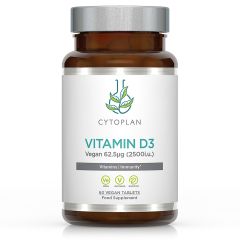What nutrients support immune health?
Our immune system is well equipped to deal with exposure to a range of different external threats – ideally before they have a chance to cause any symptoms at all. However, if our immune resilience is low and our system becomes overwhelmed, the result can be frequent infections, inflammation, allergies and even auto-immunity, where our own cells can be mistaken for harmful pathogens.
A number of factors can have a detrimental effect on our immune function, including stress, poor sleep, impaired digestion and a poor diet with insufficient levels of the following key nutrients:
Vitamin A is a fat-soluble vitamin, important for the normal function of the immune system through its role in the formation of immune cells such as antibodies and T Cells; the type of white blood cells that help identify pathogens. It also plays an important role in the maintenance and repair of the body’s natural defences, which includes the mucosal barriers in the respiratory and digestive tract. These help to trap bacteria, viruses and other infectious agents.
Food sources of preformed vitamin A include oily fish, liver, cheese and butter. Your body can also produce Vitamin A from carotenoids found in plant foods, particularly yellow and orange vegetable such as pumpkin and sweet potato, as well as leafy greens.
Vitamin C can support immunity in several ways as it supports the function of various immune cells and enhances their ability to protect against infection. It is a powerful antioxidant and has natural antihistamine properties by stabilising membranes and inhibiting the release of histamine. Smoking, alcoholism and stress can rapidly deplete vitamin C levels.
Food sources are fresh fruit and vegetables such as citrus, strawberries, kiwifruit, spinach, Swiss chard and tomatoes.
Vitamin D can profoundly strengthen both our innate and adaptive immunity, and several different immune cells have vitamin D receptors that affect their function. It can also play an important role in modulating the immune system; ensuring its appropriate function and reducing the chance of developing allergies and auto-immunity. Sub-optimal levels are common in the UK, and particular groups may have a higher risk of deficiency including the elderly, infants and children, pregnant and breastfeeding women, overweight or obese people and those who have reduced exposure to sunlight.
Vitamin D is manufactured by the skin when exposed to UV light during the summer months. Food sources include oily fish, eggs, butter and some mushrooms but it is not possible to obtain adequate vitamin D from diet and a supplement should be considered over Autumn/Winter.
Selenium is a protective mineral and essential antioxidant, and adequate intake is essential for healthy immunity. Deficiency in selenium has been associated with the pathogenicity of several viruses.
Food sources include Brazil nuts, oily fish, eggs and seaweed.
Zinc is involved in multiple aspects of immune function and is crucial for the normal development and function of the cells mediating innate immunity, such as neutrophils, as well as the development of acquired immunity. Deficiency in zinc can increase susceptibility to infectious diseases.
Food sources include shellfish, meat, nuts, seeds and legumes.
Quercetin has been shown to have anti-viral effects, with an ability to inhibit viral replication at various stages. It also has a role as an antioxidant and anti-inflammatory as well as a natural antihistamine with strong membrane stabilising properties on the mucous membranes.
Quercetin is only found in plant foods, and rich sources include apples, onions, green peppers, broccoli and capers.
Beta glucans are an important structural component of cell walls in certain organisms, and beta glucan 1-3, 1-6, found in the wall of baker’s yeast can have a potent effect on immune function. As they are found in the cell walls of fungi and bacteria the innate immune system recognises them as a potential pathogen, although they themselves do not possess the ability to cause an infection – instead they promote the upregulation of the immune system.








